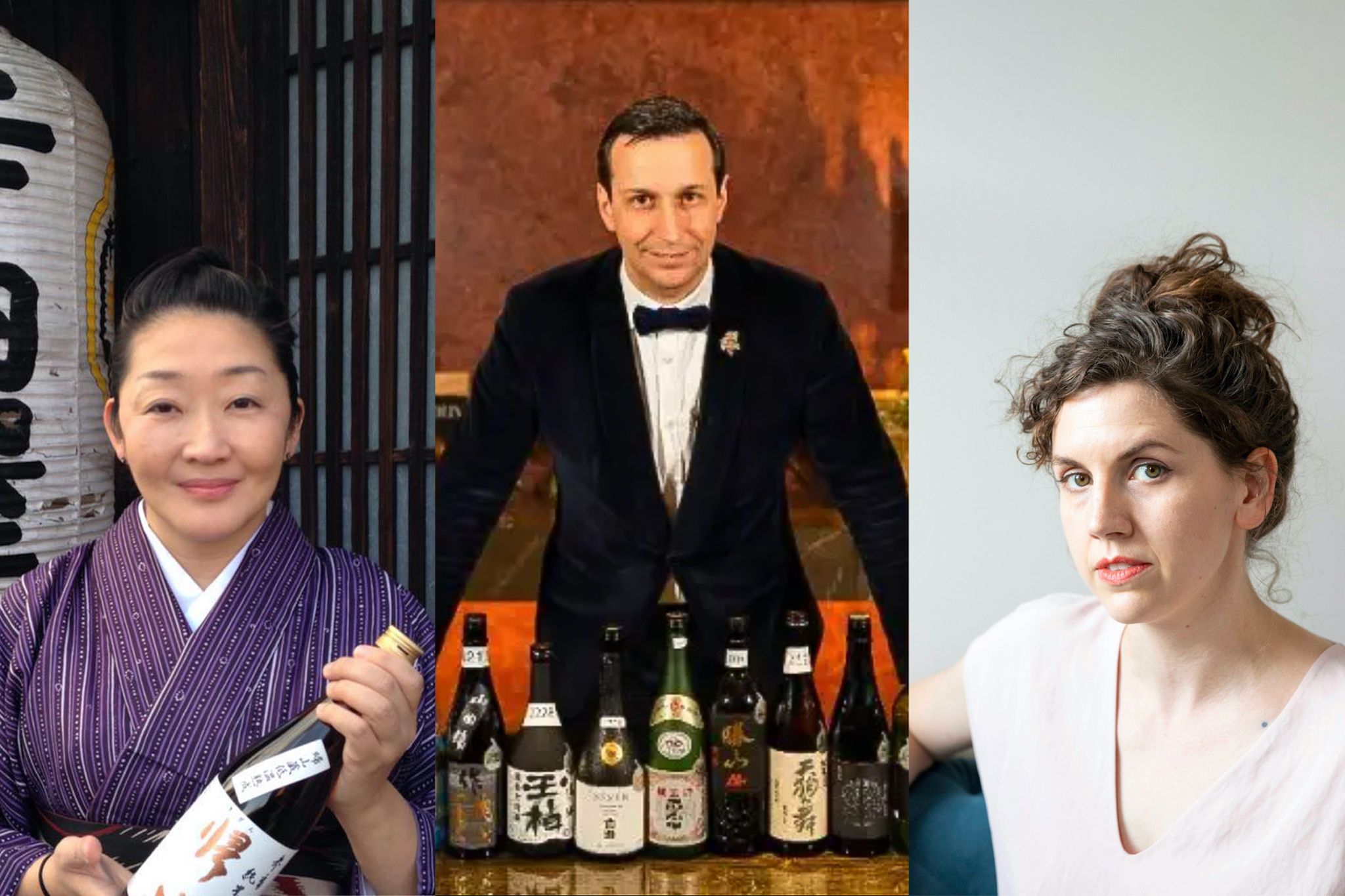Episode-02: Okawari: Water, Food, and Terroir

Podcast: Download
A lot of the interview material from our episodes here at Sake on Air winds up on the cutting room floor, but some of it is just too good to let go to waste. With our Okawari series, we raise our glass for a second round of information and insight from our past guest interviews and serendipitous encounters that we just didn’t get enough of the first time around.
This week’s Okawari welcomes back three very special guests, each touching upon topics that took place as part of our previous discussions that were equally as fascinating as the original theme of their respective shows, however because the topics covered stretched beyond the scope of the show at that time we couldn’t manage to get that material on air – until now.
First up is Ayako Yamaguchi, who joined us for Episode 55 in order to discuss Fushimi Sake. At the time of the show, because Fushimi was the topic at-hand we kept the content focused as-such, however when discussing Fushimi, it’s impossible to leave out the impact of and relationship with two other neighboring sake producing powerhouses: Nada and Itami. In this segment, Ayako shares with us a bit of historical context surrounding this relationship between this sake-making trifecta of the Kansai region, as well as discusses the challenges of researching for such deep and vast historical topics.
Next, we’re rejoined by Water, Wood and Wild Things author, Hannah Kirshner from Episode 58. Seeing as how we are a show about sake (and shochu), much of the content from that interview that made it on air were discussions centered more directly around sake-specific references and experiences outlined in her book, where her time with Shishi no Sato producer, Matsuura Shuzo, is a significant component. However, Hannah’s book is about a great deal more than sake, and to fully appreciate the role of sake both in the book, as well as in general, it’s really many of those seemingly peripheral components that are, actually, just as central. In this part of the interview, Hannah shares with us her relationship with food and cooking as a part of her life in Yamanaka and how that manifested itself the book, we discuss the wonderful range of expressions for the word “water” and the similarities between the worlds of tea and sake, and she shares with us how her ever-present role as an author documenting her experience was received as a component of her life in the countryside.
Lastly, we once again hear from Xavier Thuizat, who joined us back on Episode 53 to share with us the process of developing and hosting the world class sake competition that is Kura Master. That story in and of itself is a fascinating one, which is why we kept the focus on it for that episode, however Xavier had some very provocative food for thought when the topic of terroir came up in relation to sake. Tune in to hear about how he considers an emphasis on excessive rice polishing to be a challenge to expressions of authenticity in sake, how the dependance upon specific yeast strains is destroying the soul of sake, and why Geographical Indications (GI) could play an important role in actually simplifying the communication surrounding sake while contributing to communicating the inherent values of the beverage.
Thanks for tuning in again this week. Please feel free to leave us a review on Apple Podcasts or whatever service you rely upon for your podcasting needs. Contact us at questions@sakeonair.staba.jp with any thoughts about the show, and feel free to follow us on Instagram, Twitter, and Facebook. Everything from Sake Future Summit 2020, as well as a number of other recordings, are all archived over on our YouTube channel, as well.
We’ll be back with more Sake on Air for you in just a couple of weeks.
Until next time, kampai!
Sake On Air is made possible with the generous support of the Japan Sake & Shochu Makers Association and is broadcast from the Japan Sake & Shochu Information Center in Tokyo. The show is a co-production between Export Japan and Potts.K Productions, with audio production by Frank Walter. Our theme, “Younger Today Than Tomorrow” was composed by forSomethingNew for Sake On Air.








